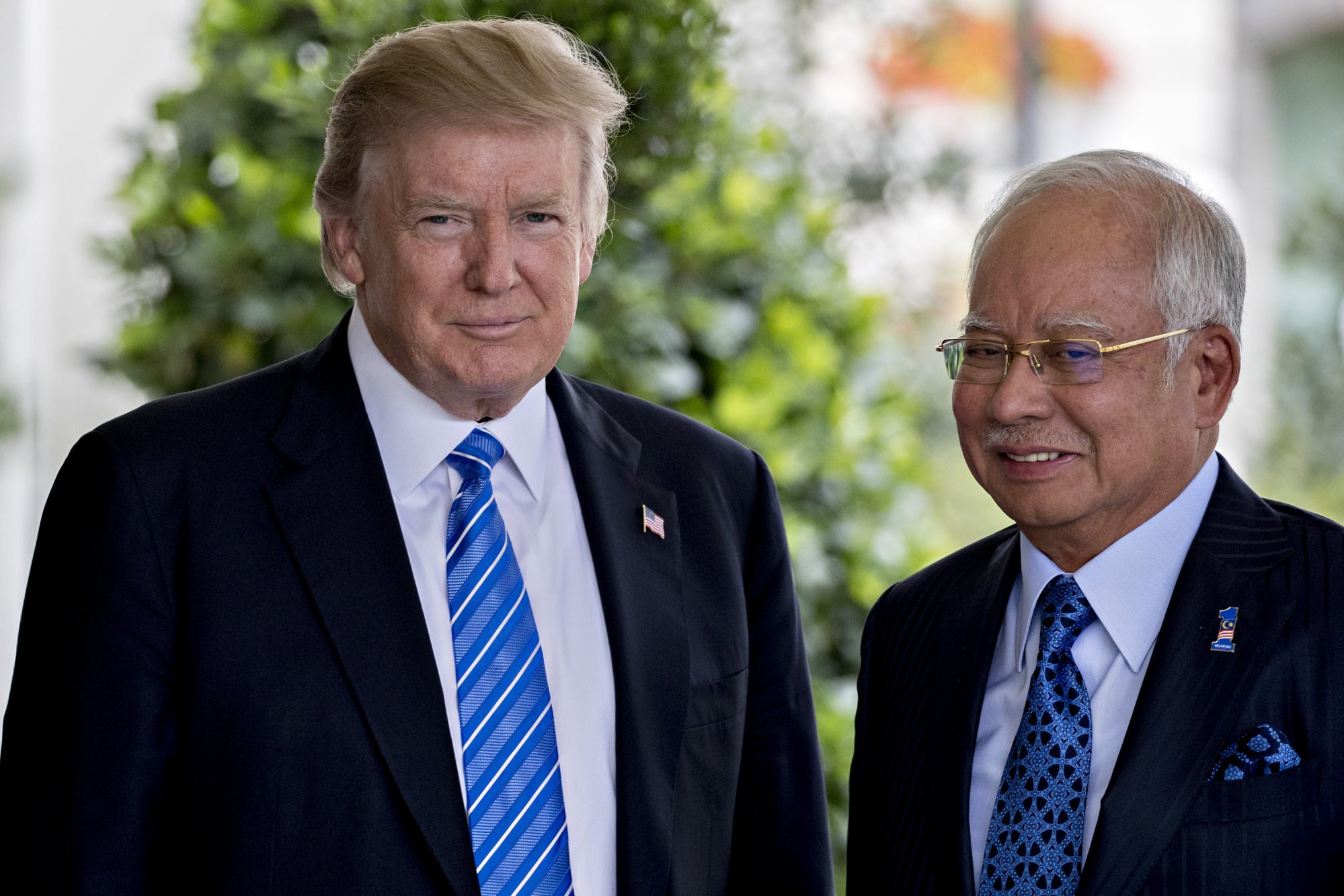In April 2014, Malaysia and the United States formalised a comprehensive partnership to enhance bilateral relations. This commitment to do more together seemed only natural. After all, the two countries have enjoyed steady and solid political, economic, military and people-to-people ties dating back to the early years of Malaysia’s independence.
This held true even during the diplomatic troughs of the late 1990s and early 2000s. This was a volatile period marked by the Asian financial crisis, the US invasions of Afghanistan and Iraq and the truculence of prime minister Mahathir Mohamad. Since then, the partnership has stagnated amid domestic and foreign crises, political neglect and diverging priorities.
For a start, the situational context 10 years ago was very different. The announcement of the comprehensive partnership was made during the fervour of Barack Obama’s trip to Malaysia, the first by a sitting US president in nearly half a century since Lyndon Johnson’s visit in 1966.
The larger context of the Obama administration’s pivot to Asia furnished the strategic opportunity for both states to build on their relationship, but it was the personal appeal of the most Southeast Asian of US presidents that defined the sensibility of the partnership.
In grounding the bilateral relationship in both word and deed, the intention was to buffer the partnership against the political vagaries of both countries. In one respect, that foresight was prescient. The end of the second Obama administration was already in sight and, as it turned out, so was the end of the Asia pivot.

Unsurprisingly, there was considerable roiling when Donald Trump took office. The institution of his Muslim ban might not have affected Malaysia directly, but it certainly put the country’s Muslim-majority population on notice.
The trashing of multilateral instruments, including the Trans-Pacific Partnership agreement which Malaysian leaders had precious political capital riding on, is still bitterly remembered in Putrajaya.
Still, Malaysia-US relations persisted. There was some fanfare when Trump welcomed prime minister Najib Razak to the White House in 2017 as a show of strengthened partnership celebrating the 60th anniversary of bilateral relations. However, there was little of significance beyond cursory official exchanges over the course of the Trump and Najib administrations.
If anything, the US Department of Justice’s actions against Malaysian sovereign wealth fund 1MDB, implicating Najib while he was in office, made for an awkward show of official ties. Additionally, growing US rancour towards China cast an uncomfortable pall over Malaysia and much of Southeast Asia, where there was reticence to accede to US political, economic and technological pressure to align with the West.
Institutionalising a bilateral relationship against capriciousness is one thing. Insulating it against domestic and external exigencies which divert political attention and policy resources is quite another. No one at the time predicted the occurrence of a global pandemic just a few years later.

11:20
The legacy of Malaysia’s 1MDB scandal on politics and corruption-fighting
The legacy of Malaysia’s 1MDB scandal on politics and corruption-fighting
Against the backdrop of hundreds of thousands dead from Covid-19, the US saw a change in government and an attempted insurrection in the nation’s capital. For three years, Washington has rallied in support of Ukraine against Russia and, since October 2023, it has backed Israel, which is accused in the International Court of Justice of committing genocide in Gaza, all while aggressively competing against China.
For its part, Malaysia has had four prime ministers since Najib’s government was routed in the 2018 general election. Senior politicians and advisers faced high-profile charges, and Najib himself is now serving a prison sentence for corruption in connection to the 1MDB scandal.
Prime Minister Anwar Ibrahim’s government coalition seemed to hang by a thread in the early days, at the end of 2022, amid the churn of religious, racial and royal sensitivities. The country has also been preoccupied with reviving its post-pandemic economy while seeking to navigate intensifying US-China competition.
To be fair, there have been efforts by the Biden administration to rekindle the bilateral spark. Yet even though US cabinet secretaries such as Secretary of State Antony Blinken, Secretary of Commerce Gina Raimondo and Trade Representative Katherine Tai as well as senior defence staff have all had meetings in Malaysia, Washington lacks a comprehensive strategy of engagement with Putrajaya other than to edge out Beijing.
There is also an unstated hierarchy among the US’ Southeast Asian partners. Malaysia does not seem to figure in Washington’s preferred top three other than for its place in the semiconductor value chain. This in itself should not be cause for angst.

01:54
KFC Malaysia temporarily closes some outlets amid anti-Israel boycott
KFC Malaysia temporarily closes some outlets amid anti-Israel boycott
The reality is that there are insurmountable positional and expectational gaps between the countries. For the US, Putrajaya’s refusal to castigate Beijing even in the face of blatant bellicosity is exasperating. For Malaysia, Washington’s foreign policy misadventures and selective adherence to international law have long been a source of friction.
Anwar’s unyielding defence of Palestine and support for Hamas, designated a terrorist group by the US but not universally, is just the latest iteration of this schism. Still, there remains optimism about a revitalised US-Malaysia comprehensive partnership.
This disaggregation of the bilateral relationship between principle and pragmatism could prove more difficult to defend, however. This is especially so with competing domestic pressures in Malaysia on the one hand and continued invalidation of international legal institutions by the US on the other.
Perhaps a sign of a maturing US-Malaysia partnership on its 10th anniversary would be an honest review of its possibilities based on its constraints. The two countries have remained indispensable, long-term friends, but the world is a much-changed place. It’s time for the relationship to be re-examined against this reality.
Elina Noor is a senior fellow in the Asia Programme at Carnegie Endowment for International Peace

